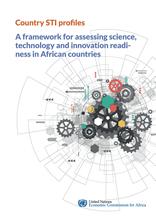Country STI profiles: A framework for assessing science, technology and innovation readiness in African countries

An understanding of the nature of economic growth is a central preoccupation of the present report. A pertinent analysis of economic growth is found in the work by Robert J. Gordon, The Rise and Fall of American Growth, in which Gordon points out an often forgotten fact: that economic growth is neither steady nor continuous (Gordon, 2016). When growth occurs (or declines), therefore, it is essential that policymakers, researchers and analysts identify the underlying reasons and the sources of such movement. Among the reasons for this is to facilitate the development of new policies, for successful policies to be replicated, including incentives, and for learning and experience sharing to be promoted.
African economies made impressive gains in the first decade of the twenty-first century. These gains changed in demonstrable ways the negative narrative that characterized the continent in the last decades of the twentieth century. Many observers note, however, that the recent positive growth performance does not result in the significant transformation of Africa’s economies. They point out that, for growth to result in economic trans-formation, it must be knowledge-based and innovation-driven, based on evidence from advanced economies and newly industrialized countries. Knowledge-based and innovation-driven economies are economies with sustained investments in science, technology and innovation (STI), and that have the capacity to transform inventions into innovations in order to drive national competitiveness and improve social welfare. Such countries have economic and STI policies integrated as coherent national policies and strategies; their decisions on STI are guided by carefully drafted country STI readiness and assessment reports (including, for example, country STI profiles).